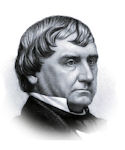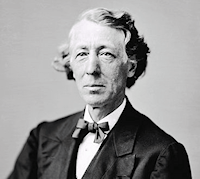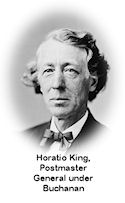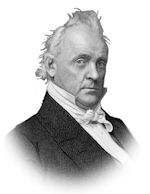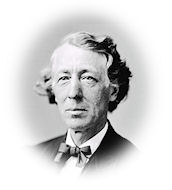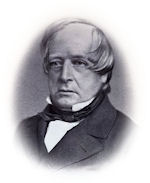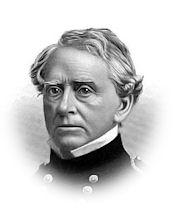War Department, March 5, 1861.
Sir,—I have the honor to submit for your consideration several letters with inclosures received on yesterday from Major Anderson and Captain Forster of the Corps of Engineers, which are of a most important and unexpected character. Why they were unexpected will appear from the following brief statement:
After transferring his forces to Fort Sumter he (Major Anderson) addressed a letter to this Department, under date of the 31st December, 1860, in which he says, ‘ Thank God! we are now where the Government may send us additional troops at its leisure. To be sure, the uncivil and uncourteous action of the Governor (of South Carolina) in preventing us from purchasing anything in the city will annoy and inconvenience us somewhat; still we are safe.’ And after referring to some deficiency in his stores, in the articles of soap and candles, he adds: ‘Still we can cheerfully put up with the inconvenience of doing without them for the satisfaction we feel in the knowledge that we can command this harbor as long as our Government wishes to keep it.’ And again, on the 6th of January, he wrote: ‘My position will, should there be no treachery among the workmen whom we are compelled to retain for the present, enable me to hold this fort against any force which can be brought against me; and it would enable me, in the event of war, to annoy the South Carolinians by preventing them from throwing supplies into their new posts except by the aid of the Wash Channel through Stono River.’
Before the receipt of this communication, the Government, being without information as to his condition, had despatched the Star of the West with troops and supplies for Fort Sumter, but the vessel, having been fired on from a battery at the entrance to the harbor, returned without having reached her destination.
On the 16th of January, 1861, in replying to Major Anderson’s letters of the 31st of December and of the 6th of January, I said, ‘Your late despatches, as well as the very intelligent statements of Lieutenant Talbot, have relieved the Government of the apprehensions previously entertained for your safety. In consequence it is not its purpose at present to reinforce you. The attempt to do so would no doubt be attended by a collision of arms and effusion of blood—a national calamity which the President is most anxious to avoid. You will, therefore, report frequently your condition, and the character and activity of the preparations, if any, which may be being made for an attack upon the fort or for obstructing the Government in any endeavors it may make to strengthen your command. Should your despatches be of a nature too important to be intrusted to the mails, you will convey them by special messenger. Whenever, in your judgment, additional supplies or reinforcements are necessary for your safety or for a successful defence of the fort, you will at once communicate the fact to this Department, and a prompt and vigorous effort will be made to forward them.’
Since the date of this letter Major Anderson has regularly and frequently reported the progress of the batteries being constructed around him, and which looked either to the defence of the harbor or to an attack on his own position. But he has not suggested that these works compromised his safety, nor has he made any request that additional supplies or reinforcements should be sent to him. On the contrary, on the 30th of January, 1861, in a letter to this Department, he uses this emphatic language: ‘I do hope that no attempt will be made by our friends to throw supplies in; their doing so would do more harm than good.’
On the 5th of February, when referring to the batteries, etc., constructed in his vicinity, he said, ‘Even in their present condition they will make it impossible for any hostile force, other than a large and well appointed one, to enter this harbor, and the chances are that it will then be at a great sacrifice of life;’ and in a postscript he adds : ‘Of course, in speaking of forcing an entrance, I do not refer to the little stratagem of a small party slipping in.’ This suggestion of a stratagem was well considered in connection with all the information that could be obtained bearing upon it, and in consequence of the vigilance and number of the guard-boats in and outside of the harbor it was rejected as impracticable.
In view of these very distinct declarations, and of the earnest desire to avoid a collision as long as possible, it was deemed entirely safe to adhere to the line of policy indicated in my letter of the 16th January, which has been already quoted. In that Major Anderson had been requested to report ‘at once,’ ‘whenever, in his judgment, additional supplies or reinforcements were necessary for his safety or for a successful defence of the fort.’ So long, therefore, as he remained silent upon this point the Government felt that there was no ground for apprehension. Still, as the necessity for action might arise at any moment, an expedition has been quietly prepared, and is ready to sail from New York on a few hours’ notice, for transporting troops and supplies to Fort Sumter. This step was taken under the supervision of General Scott, who arranged its details, and who regarded the reinforcements thus provided for aa sufficient for the occasion. The expedition, however, is not upon a scale approaching the seemingly extravagant estimates of Major Anderson and Captain Forster, now offered for the first time, and for the disclosures of which the Government was wholly unprepared.
The declaration now made by the major that he would not be willing to risk his reputation on an attempt to throw reinforcements into Charleston harbor, and with a view of holding possession of the same, with a force of less than twenty thousand good and well-disciplined men, takes the Department by surprise, as his previous correspondence contained no such intimation.
I have the honor to be,
Very respectfully,
Your obedient servant,
J. Holt.
To The President.
